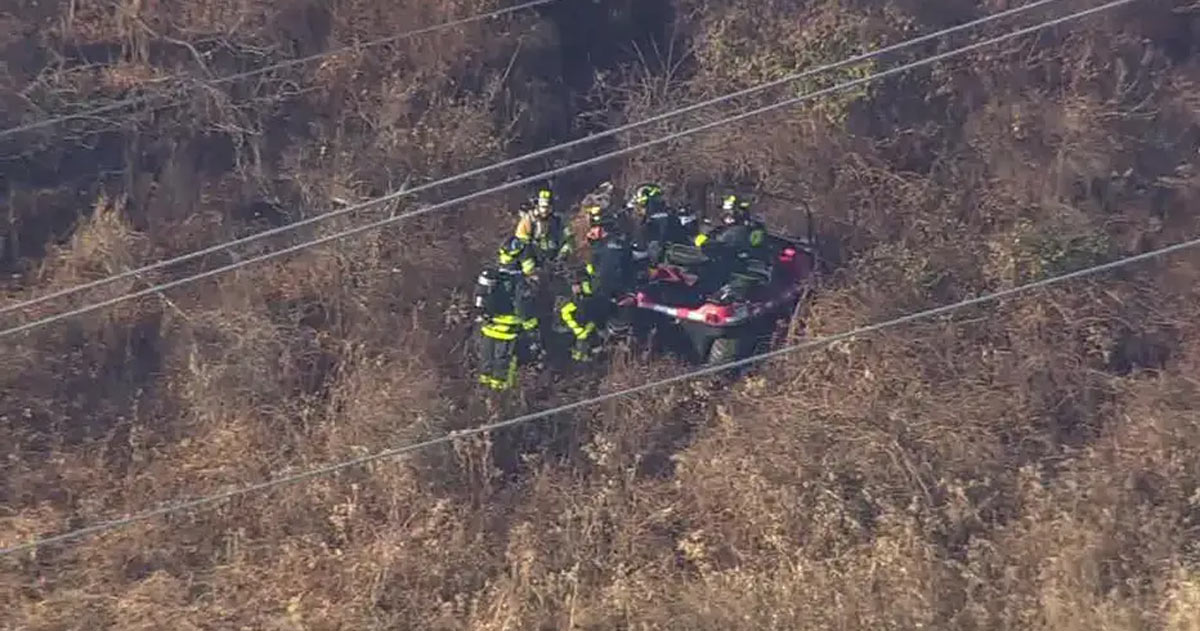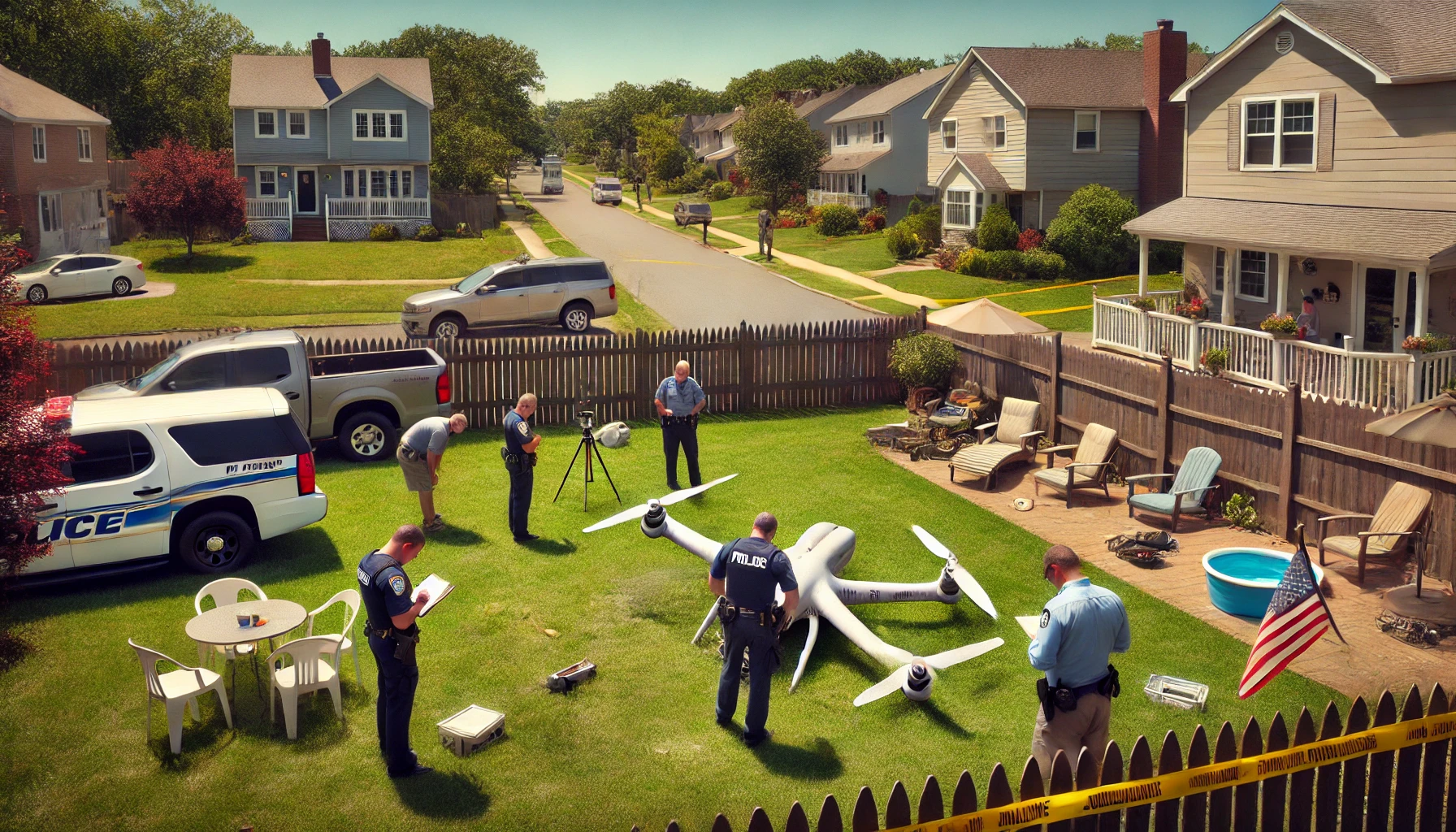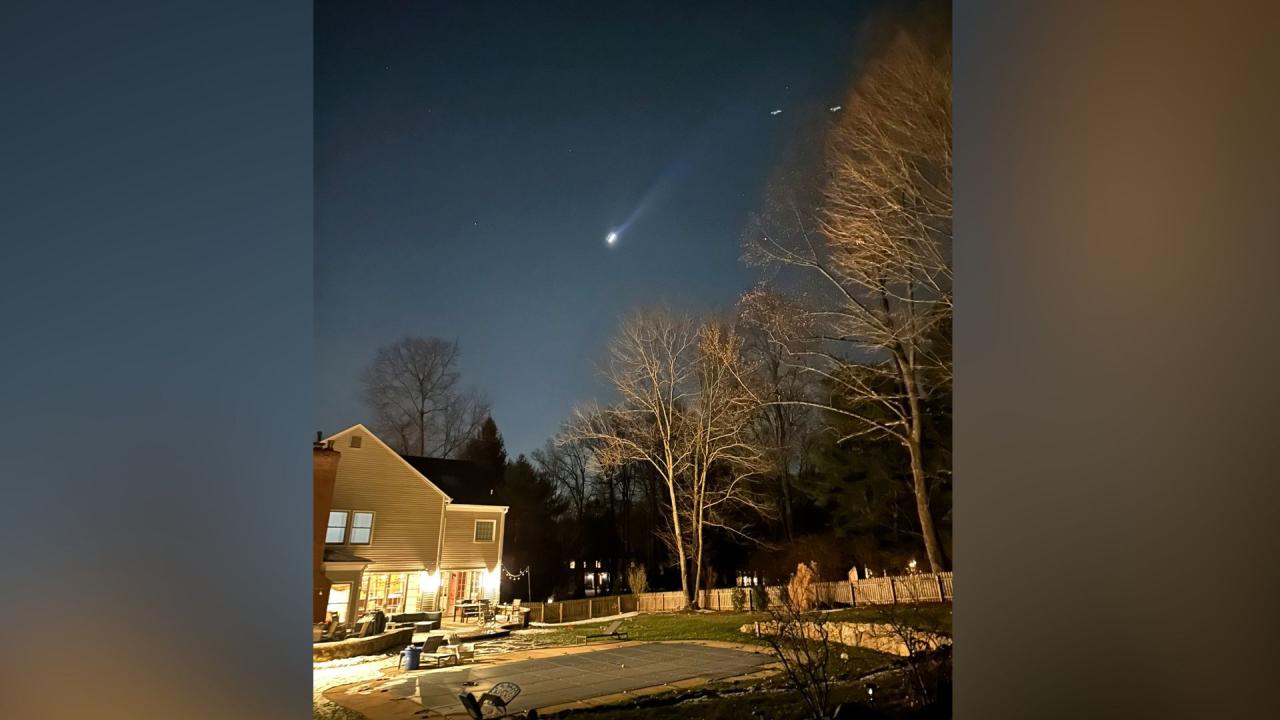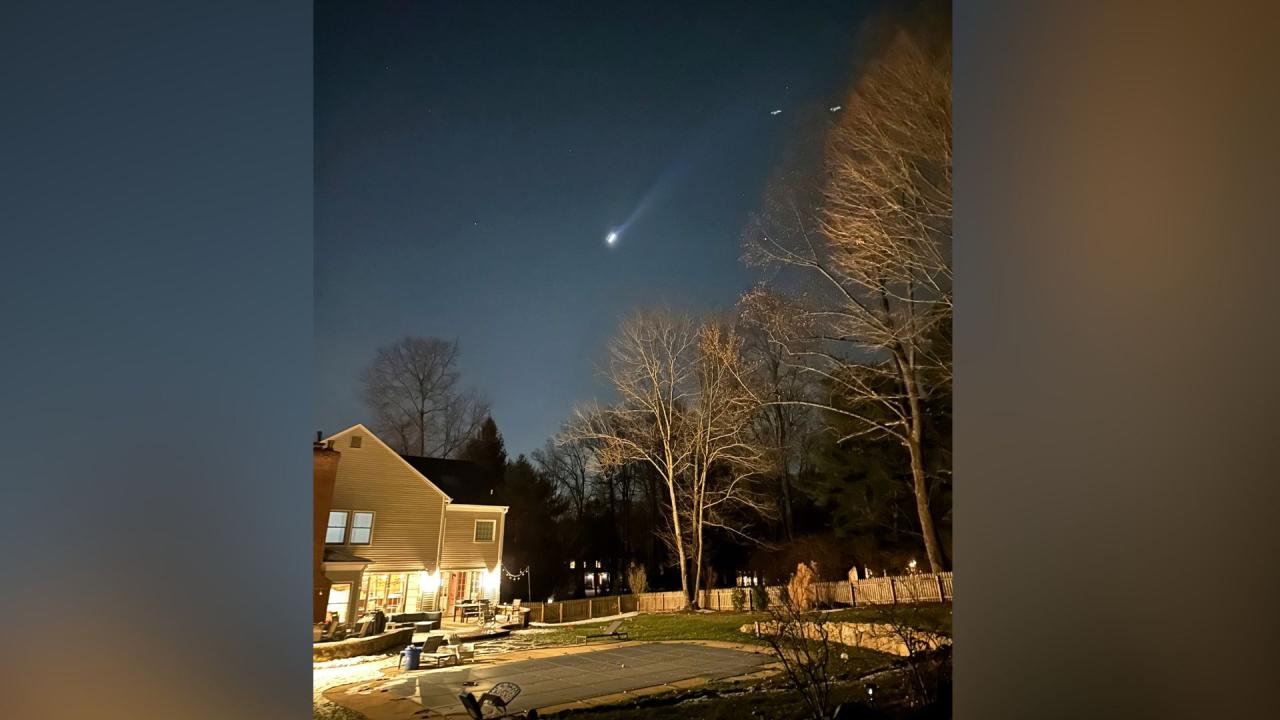Drone crashes in New Jersey present a compelling case study in the evolving landscape of unmanned aerial vehicle (UAV) technology. This exploration delves into recent incidents, examining contributing factors, regulatory responses, and the broader societal implications. We will analyze the impact on infrastructure, residents, and the ongoing efforts to enhance safety and awareness surrounding drone operation.
The following sections will detail specific crashes, highlighting the types of drones involved and the resulting consequences. Furthermore, we’ll examine existing regulations, proposed safety measures, and public perception of drone technology in New Jersey, offering a comprehensive overview of this critical issue.
Recent Drone Crashes in New Jersey

Drone incidents in New Jersey, while relatively infrequent compared to other states with higher drone usage, still pose risks to residents and infrastructure. Understanding the causes, consequences, and regulatory landscape surrounding these crashes is crucial for mitigating future occurrences and ensuring public safety.
Significant Drone Crash Incidents in New Jersey (Last Three Years)
The following table details five significant drone crashes in New Jersey over the past three years. Note that precise details may be limited due to privacy concerns and ongoing investigations in some cases. The information presented is based on publicly available reports and news articles.
| Date | Location | Cause | Outcome |
|---|---|---|---|
| October 26, 2022 | Trenton, NJ | Pilot error (loss of control) | Minor property damage; no injuries. |
| May 15, 2023 | Atlantic City, NJ | Mechanical failure (rotor malfunction) | Drone crashed into the ocean; drone lost. |
| July 8, 2023 | Newark, NJ | Collision with a bird | Drone damaged; no injuries. |
| September 2, 2021 | Princeton, NJ | Strong winds; pilot error | Drone crashed into a tree; minor damage. |
| November 12, 2022 | Hoboken, NJ | Battery failure | Drone fell into the Hudson River; drone lost. |
The drones involved varied in make and model, ranging from consumer-grade DJI Mavic models used for recreational purposes to more robust commercial drones used for aerial photography and inspection. Specific models are not always publicly released due to ongoing investigations.
Contributing Factors to Drone Crashes in New Jersey

Several factors contribute to drone crashes. These can be broadly categorized into pilot error, mechanical failure, and environmental conditions.
- Pilot Error: This includes issues such as loss of control, improper pre-flight checks, exceeding operational limits, and inadequate pilot training.
- Mechanical Failure: Malfunctioning rotors, battery failures, and GPS system errors are common mechanical causes.
- Environmental Conditions: Strong winds, rain, snow, and fog can significantly impact drone stability and control.
Impact of Drone Crashes on New Jersey Residents and Infrastructure
Drone crashes can have significant consequences for both residents and infrastructure.
- Residential Areas: Crashes can cause property damage, such as broken windows or damaged roofs. In extreme cases, injuries are possible.
- Critical Infrastructure: Collisions with power lines, communication towers, or airports can lead to power outages, communication disruptions, and flight delays, causing significant economic losses.
- Economic Repercussions: Repair costs, insurance claims, and potential lawsuits resulting from property damage or injuries contribute to the overall economic impact.
Regulatory Landscape and Safety Measures in New Jersey
Drone operation in New Jersey is subject to federal and state regulations. These regulations aim to ensure safe and responsible drone operation.
- Licensing Requirements: Federal regulations require registration for most drones. Specific licensing may be needed for commercial operations.
- Airspace Restrictions: Certain airspace, such as airports and restricted areas, requires special authorization for drone flights.
- Operational Guidelines: Regulations dictate safe operating procedures, including maintaining visual line of sight, respecting privacy, and adhering to weight and altitude limits.
Reporting a drone crash involves contacting the Federal Aviation Administration (FAA) and potentially local law enforcement.
Drone manufacturers play a critical role in safety through rigorous quality control and the incorporation of safety features such as fail-safe mechanisms and redundancy systems in their designs.
Recent drone crashes in New Jersey have sparked discussions about airspace regulations. Interestingly, photographers covering these incidents often utilize compact, high-quality cameras like the fujifilm x100v for capturing detailed images of the wreckage and surrounding area. The resulting images help investigators understand the circumstances leading to these unfortunate events in New Jersey.
Public Perception and Awareness of Drone Safety
Public awareness of safe drone operation varies. Some common misconceptions include believing that all drones are the same, underestimating the potential for damage, and overlooking the importance of adhering to regulations.
A public service announcement (PSA) could emphasize the importance of responsible drone operation and compliance with regulations.
Example PSA Script: “Fly safely, fly legally. Before you take flight, check weather conditions, register your drone with the FAA, and understand airspace restrictions. Respect privacy and never fly near airports or critical infrastructure. Let’s keep our skies safe.”
New Jersey’s public awareness campaigns could benefit from increased collaboration with community organizations and educational institutions, similar to successful initiatives in states like California and Texas which utilize targeted outreach programs and online resources.
Future Trends and Technological Advancements in Drone Safety

Advancements in drone technology offer potential solutions to mitigate crash risks.
- Autonomous Flight and Obstacle Avoidance: Improved autonomous flight systems and sophisticated obstacle avoidance technologies will reduce pilot error.
- Enhanced GPS and Communication Protocols: More robust GPS and communication systems will improve drone localization and control, reducing the impact of environmental interference.
- Advanced Sensor Technology: Sensors such as LiDAR and radar will enhance situational awareness and collision avoidance capabilities.
- AI for Predictive Maintenance and Real-time Risk Assessment: AI algorithms can analyze drone data to predict potential failures and assess risks in real-time, allowing for preemptive action.
Ultimately, the issue of drone crashes in New Jersey underscores the critical need for responsible drone operation, robust regulatory frameworks, and continuous advancements in drone technology. By understanding the contributing factors, implementing effective safety measures, and fostering public awareness, we can mitigate risks and ensure the safe integration of drones into New Jersey’s airspace. Further research and collaboration between stakeholders are crucial for shaping a future where drones contribute positively to society while minimizing the potential for accidents.
Recent drone crashes in New Jersey highlight the importance of responsible drone operation. To prevent similar incidents, understanding proper drone regulations is crucial, and obtaining a license, like the transport canada drone license , if operating in Canada, ensures compliance. Ultimately, stricter adherence to safety guidelines could significantly reduce the number of drone crashes in New Jersey and elsewhere.
FAQ Overview
What is the FAA’s role in drone regulation in New Jersey?
The Federal Aviation Administration (FAA) sets national standards for drone operation, which New Jersey must adhere to. This includes registration requirements, airspace restrictions, and pilot certifications.
Where can I report a drone crash in New Jersey?
Report drone crashes to local law enforcement first. Depending on the severity and location, you may also need to contact the FAA or the New Jersey State Police.
What kind of insurance is needed for drone operation in New Jersey?
Insurance requirements vary depending on the drone’s use and weight. Liability insurance is generally recommended to cover potential damages caused by a crash.
Are there specific no-fly zones for drones in New Jersey?
Yes, many areas are restricted, including airports, critical infrastructure, and certain events. Consult the FAA’s B4UFLY app or website for up-to-date information.
